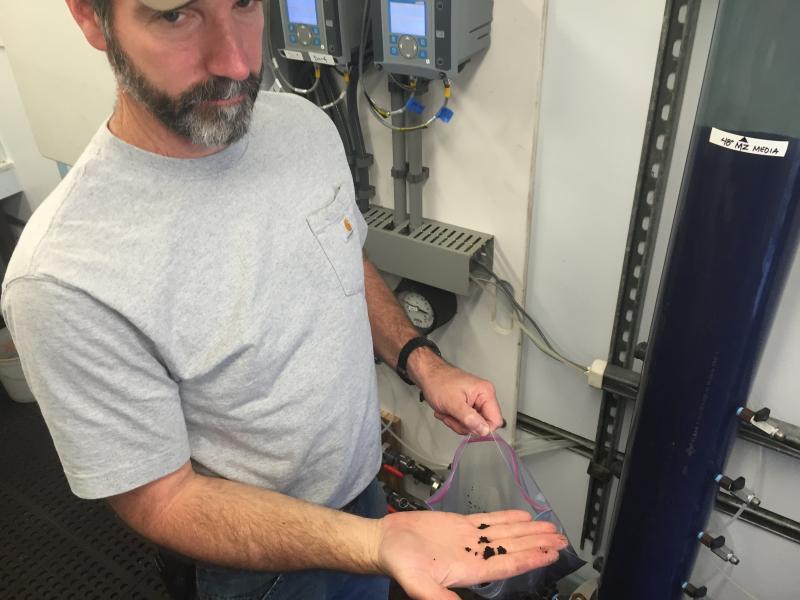Wareham Water Department testing seeks to lower iron levels
According to Wareham Water Department Superintendent Andrew Reid, the department’s water quality is second to none, once the problem of high iron and manganese levels being pumped out of a handful of wells is solved.
The department is searching for a solution with the help of Blueleaf Inc., a Charlton-based engineering company that has been testing two different water filtration systems at the department’s well field since Labor Day.
Reid said test results will decide which system is best suited for a proposed, multi-million dollar water purification plant that has long been in the works. Known as the Maple Springs Purification Plant, the project was initially approved in 2010 and had an estimated cost of $3.5 million. This summer, a new estimate put a higher price tag on the project, between $9.9 million and $18.9 million. Reid noted water from the contaminated wells is not being pumped into homes.
Blueleaf’s work, known as “pilot tests,” pits a biologically-based filter system head-to-head against a chemically based one to see which will provide the safest, best-tasting water for the least amount of money.
Required by the Environmental Protection Agency, pilot tests help inform the future design plans for the purification treatment plant, which Reid described as the “district’s biggest capital project in its 100-year history.”
Erik Grotton, the owner of Blueleaf, explained that the biologically-based method has been popular in Europe since the 1980s, but is only recently making headway in the U.S. Essentially, that filter system relies on naturally occurring microbes to reduce the level of heavy metals in water.
“It’s a green technology,” said Grotton. “People like it because it’s natural and water departments like it because it costs less.”
The second filtration system being tested relies on chlorine to reduce iron and manganese levels, a traditional method that has drawbacks. Reid said chlorine-flavored water generates complaints among users.
Grotton noted Blueleaf doesn’t advocate for one method over another, the company just performs the test.
“Our role is to see what works and what fails,” said Grotton.
Testing is ongoing until December, Reid said. Based on the results, plans for one of those filtration systems will be drawn up in the design for the water purification plant.
Ultimately, the plant’s final approval will have to come from Wareham Fire District voters at their annual meeting.















